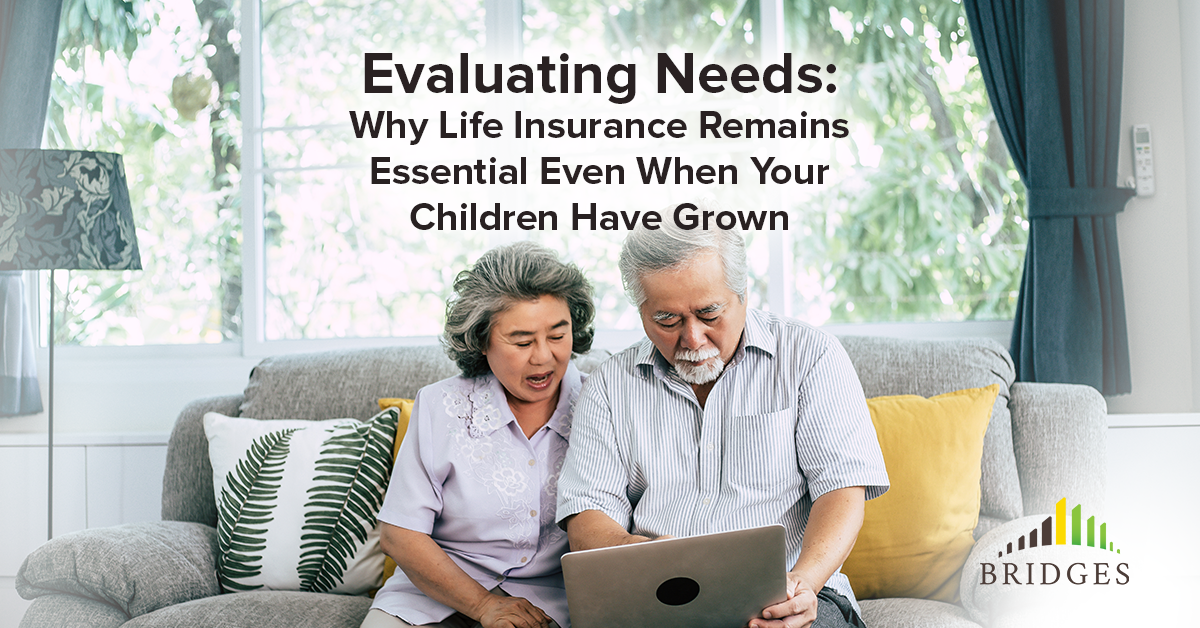
You purchased a life insurance policy years back when your children were still in school so that they would be protected in case of your unexpected death. However, now that they’re grown and almost fully independent, you’re left wondering whether you still need the policy or not.
If that scenario applies to you, know that you’re not alone as I’m on the same boat.
A lot has changed in my life over the last five years. My two eldest children have since graduated and are now working. My two youngest, meanwhile, are working students who live on their own, paying rent, food, and utilities themselves. The only expense I cover for them are their tuition fees.
When they were still very little, the life insurance policies I purchased were indispensable, serving as the life raft that would ensure they could all continue school and not have to worry about security. But now that they can take care of themselves, I’m now evaluating my needs and asking myself whether I should still keep those policies.
Just a disclaimer: The insights I’m sharing here are based on my own financial plan, not a one-size-fits-all template. My program may not necessarily work for you because your income, personal needs, number of dependents, and timeframe may be different from mine, which is why you shouldn’t take everything I say here for gospel. That said, I’ll still be including a few tips here and there that apply to everyone.
Some life insurance policies aren’t limited to protection against unexpected death, so you shouldn’t be too quick to abandon them without good reason.
Cash Benefits
My financial plan, for example, comprises various insurance policies that come with living benefits. These are benefits that I can enjoy while I’m alive and healthy, such as cash payouts. Because most of these policies are close to 15 years old now, there’s a decent amount of cash value that’s been accumulated, which I can withdraw anytime I want.
Now that my kids are sustaining themselves, I have more freedom to use the money for whatever I want. When viewed that way, it’s as though I’m also gaining back my independence, and I’m enjoying that privilege by making leisure plans. For example, I flew to Vietnam a few months ago and spent a week in Ho Chi Min. And in the coming year, my travel plans include visiting a loved one in Toronto, signing up for a pilgrimage trek in Spain, and joining a Spartan Race outside of the metropolis.
On top of that, the cash value of my policies also help move my life forward. When I eventually do decide to slow down from work, I know I can afford it without needing to shift lifestyles.
Immediate Expenses
Regardless of how financially secure my children are, they could still find good use out of the full death benefit. The best example perhaps is to use it to pay the immediate expenses that may arise from my death, including funeral and burial services and any outstanding medical bills, if any.
They could also use the sum to pay off the estate taxes, so that it doesn’t eat into their inheritance.
The full death benefit is essentially an almost-immediate sum they could draw from, should they need it, and it’s not subject to income tax.
Make A Plan
Don’t underestimate the value of making a plan. Even if you can’t see the future, you at least have dreams for your life, and to make those a reality, you need a plan.
Growing up, my parents have always been skeptical about insurance policies, choosing instead to invest whatever money they had back into the family business. That’s why when my husband left me years ago, I didn’t have anything to start with – no insurance policies or investments to keep me secure. But I knew how important having a financial plan was not only for my future but my children’s as well, so I made sure to develop one as soon as I could.
You always have to start somewhere – which is sometimes half the battle. Once you do, you then have to stay diligent in adjusting to changes in your life and the economy. You constantly have to evaluate your needs and do reviews to help you put your life and finances into perspective and manage your expectations.
The best way to do all that is to work with a professional, who can help you develop a plan and get on top of potential risks before they become a problem. Even as a finance professional, I consult with peers in the industry to get the best advice. There are a handful of these people that are open to sharing their opinions and thoughts. I treat myself like a client to ensure I can always see the big picture of my financial plan.
Also, remember that your plan doesn’t only cover life insurance. Your plan should also include health, banking, memorial, among others, and you should consult with the respective professionals for those needs.
linkiNG you to opportunities,

READ MORE:
- Truly Inspired Individual: Reaching Your Fullest Potential Through Your WHY
- Complete Peace of Mind: The Power of Dual HMO and Health Insurance Coverage
- Valuing the Invaluable: Finding a Healthcare Plan That Works for You and Your Company’s Needs
- Valuing the Invaluable: Why Every Company Needs Healthcare Benefits
- Procrastination and Consequences: How I Learned To Make Smart Choices In Life
- The Dynamic Duo of Reaching Your Financial Goals: Saving and Investing
- Redefining What It Means To Be A Financial Advisor
- Can You Afford To Pay Your Employees When They Retire?
- Defining Bridges-PH’s Customer Experience: Trust and Confidence
- Life Insurance Comparison: Weighing The Pros and Cons of Each Type of Plan – Part 1
- Health Insurance Options: Finding The Perfect Plan For Your Needs – Part 1


